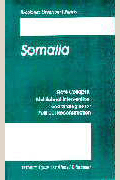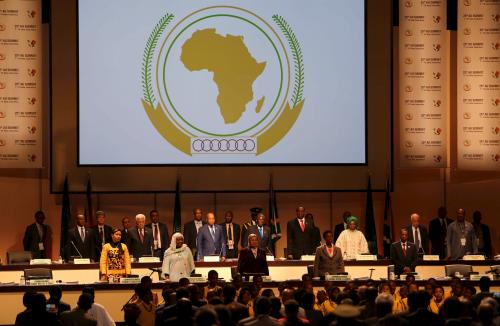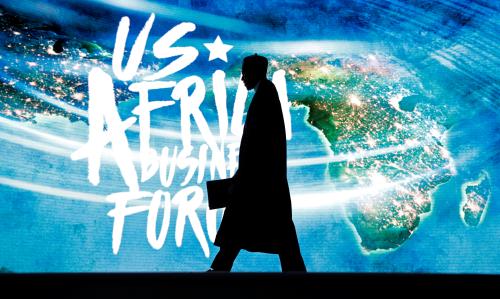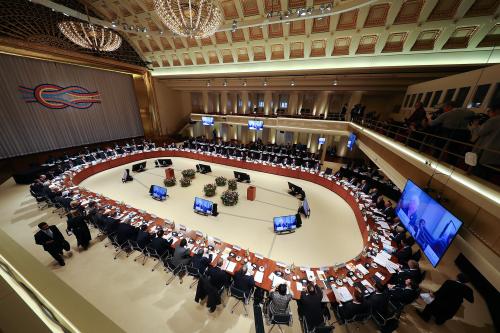South African and Nigerian presidents meet to strengthen relations
On Thursday, October 3, Nigerian President Muhammadu Buhari and South African President Cyril Ramaphosa signed multiple accords to strengthen trade relations. The accords seek to enable South Africa to leverage the African Continental Free Trade Area (AfCFTA) to access West African markets and to bolster Nigeria’s efforts to diversify its economy by identifying key sectors for growth, including roads, railways, mining, manufacturing, and agroprocessing. Currently, Nigeria is South Africa’s largest trade partner within Africa, with trade flows of around $4.5 billion in 2018.
Kenya and South Africa’s attempts to strengthen relations follow xenophobic attacks against Nigerians, among others, in Johannesburg several weeks ago. During the meetings, Ramaphosa reiterated his government’s condemnation of the acts of violence, while Buhari called for preventive measures in response to the “unacceptable” attacks. Ramaphosa suggested the establishment of an “early warning mechanism” in order for the two countries to inform each other of potential violence or public disorder. The two leaders also engaged in long-planned talks aimed at strengthening trade and political cooperation.
U.S. re-opens embassy in Somalia
Also on Thursday, the United States re-opened its embassy in Mogadishu, Somalia. The re-opening comes 28 years after the embassy closed in response to the 1991 outbreak of civil war in the east African country, and builds on the U.S.’s re-establishment of a permanent diplomatic presence in Mogadishu in December 2018. In a statement, the U.S. State Department said that the re-establishment of the embassy was “another step forward in the resumption of regular U.S.-Somali relations, symbolizing the strengthening of U.S.-Somalia relations and advancement of stability, development, and peace for Somalia, and the region.”
In recent weeks, Somalia has also agreed to normalize relations with Kenya after a dispute between the two countries on maritime borders. Kenyan President Uhuru Kenyatta and Somalian President Mohamed Farmaajo met on the sidelines of the United Nations General Assembly to discuss relations between the two countries, and agreed to their normalization without any implications for the maritime dispute. Regarding the dispute, Somalia has committed to comply with any U.N. International Court of Justice ruling and to accept the border delimited by the tribunal.
For more on Somalia’s development reforms and goals, see Somalia’s path to stability by Brookings Global Nonresident Senior Fellow Raj M. Desai.
UNECA urges tax reforms on African digital economy, while the African Union suggests local tax restructuring in Kenya
On Thursday, October 3, at a pan-African conference on illicit financial flows and taxation, the United Nations Economic Commission for Africa (UNECA) discussed tax reforms for capitalizing on the continent’s growing digital economy. Experts at the discussion emphasized that, given the prominence of information and communication technologies (ICTs) in the global economy, Africa’s tax policies must be updated to capture appropriate revenues from high tech companies engaged in the ICT trade. At the panel, Doris Akol, Commissioner General of Uganda Revenue Authority, supported this idea, saying, “If you harness the ability of collecting tax from digital economy – the new normal – data is your oil or gold.” These recommendations follow a March 2019 UNECA report in which the institution also recommended the use of digital tools to enhance domestic resource mobilization.
Kenya has already introduced taxes on mobile transactions and airtime. A recent Brookings policy brief, “Taxing mobile phone transactions in Africa: Lessons from Kenya,” discusses the different effects of that tax, warning that, if not enacted with care, the tax may not expand the tax base as desired, but, instead, may reverse the gains already made on financial inclusion and tax revenue.
In other Kenyan tax news, the African Union recently urged Kenyan policymakers to rethink the country’s current tax policies regarding local and foreign businesses. According to Ms. Ron Osman Omar, acting head of industry division at the African Union, “Many multinationals continue to enjoy tax-free status in several other African countries, and I’m not against this, but the same regulations could also be granted to local industries.” Currently, she says, the current tax system actually constrains domestic businesses and investment.
For more on other domestic resource mobilization strategies, see the recent Brookings report, “Mobilization of tax revenues in Africa: State of play and policy options.”








Commentary
Africa in the news: South Africa-Nigeria relations, U.S. embassy in Somalia, and UNECA, AU recommend tax reforms
October 5, 2019